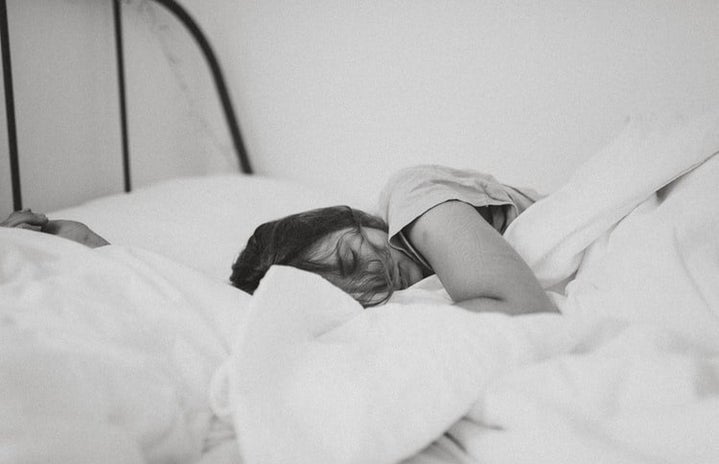It didn’t just happen on one random morning where Shelby Stanley, an 18-year-old woman from the Tampa Bay Area, felt lethargic, hopeless, a lack of concentration, and a change in appetite. At first, she did not realize that she had depression, but she knew inside that there was something wrong, and that her behavior was changing:
“I honestly did not know that I had depression until I was considering hurting myself physically in some way. I didn’t know the signs of depression, so there was no way to know something was wrong with me until I associated it to self-harm.”
When Shelby knew that it was time to get help, she reached out to her parents and her brother. It was tough. Her mom treated her like a $1,700 porcelain doll, making sure to watch Shelby’s every step to make sure she was okay. Her dad took an uneducated approach. He provided her hugs, thinking that the hugs would make her feel more secure. Her brother’s opinion, however, was a different story:
“My brother at first was embarrassed to have a depressed sibling. He treated my depression as a joke and not as a true diagnosis. He even went as far as saying that I was lying about how serious my depression was. It made it clear that my mom was truly the only one that was supportive from the beginning.”
Shelby grew up with a family that had a lot of internal and financial struggles. She has a mother who is a former pill addict, and a father who is currently an alcoholic. Life was tough, and they had to live paycheck to paycheck. “We have always been on the poorer side, but we have never been without our needs. Both of my parents worked their butts off while working at the gas station to make sure my brother and I could have the best childhood and life as possible.”
When asked about stereotypes, Shelby went straight to attention-seeking, a common misconception that many people believe that those who suffer from depression have:
“Many people think that we, individuals struggling with depression, are looking for pity or for others to say, ‘Oh, poor you,’ when we’re not. We’re depressed– not a charity case looking for more funding. It gets worse if someone finds out that the person self-harmed. People will throw that back at our faces negatively by using our self-harm as ‘proof’ of wanting attention. This is the last thing that we want because most us are ashamed of what we have done to ourselves.”
In the final moments of our interview, Shelby wanted to share two things:
“Listen and do not judge so quickly. If an individual who suffers from depression talks to you about it or about anything, just listen to what they have to say. It will make them feel wanted and worthy enough to be cared about, even if it’s from one person. Do not think that every depressed individual is the same. We deal with depression differently. For instance, if you see someone who says they are depressed, and they laugh or seem to be the life of the party, do not think that they are lying. Some deal with pain through laughter. Some just do it to make others happy, ’cause to them, it’s worth their pain if it means they can provide others with happiness.”
At the end of the day, Shelby wants to remind people to put themselves in her shoes like the sociological term of Verstehen. Some people can feel like a broken record daily with insults floating inside their heads constantly. Depression isn’t something to take lightly. If you, your friends, a close family member had to deal with it all the time, how would you feel if you or they were always misunderstood?
If you ever feel the need to communicate with someone because of suicidal thoughts, please call 1-800-273-8255. For communication that is not suicidal please feel free to speak to a listener on 7 Cups of Tea.



